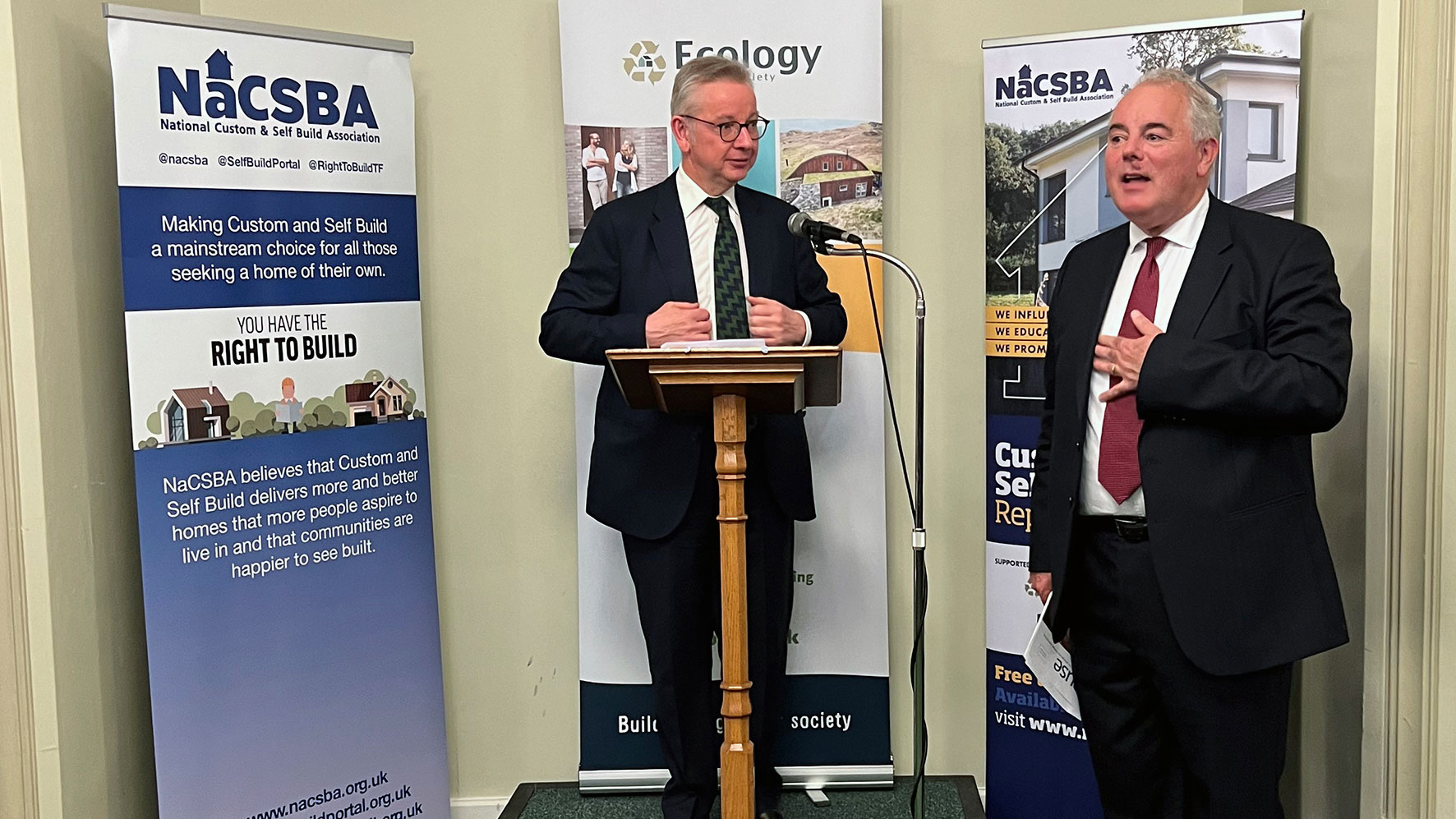Michael Gove threatens to take away council's planning powers
Gove announces league tables and claims he "will make sure that every local authority is held to account" for their homebuilding targets

Michael Gove has threatened to remove council's planning powers if they continue to fail to meet their housing delivery targets.
In a speech he gave at the Royal Institute of British Architects (RIBA) he laid the blame on the government's failure to meet their own homebuilding targets on councils refusing to grant planning permission for suitable projects.
Gove vowed that he would ensure "that every local authority is held to account" and "act wherever there is failure" by threatening to remove the council's ability to delay applications and also announced "league tables" for councils to assess the councils who are underperforming.
What powers is Gove threatening to remove?
Gove claims that some authorities use Extension of Time Agreements in order "to slow down the system", which developers are forced into agreeing to.
Extension of Time Agreements are arrangements that let local authorities take more time to process planning applications beyond standard time limits, which are usually eight weeks for non-major applications and 13 weeks for major applications.
Without these agreements, it was revealed that over the two years until September, only 9% of local authorities were able to process 70% or more of non-major applications within the government-required eight-week period.
Gove stated: "Because I am so concerned by the ballooning use of these agreements – and the delay that they cause in particular for non-major applications, where their use has jumped more than four fold in under a decade – I will take action now.
Get the Homebuilding & Renovating Newsletter
Bring your dream home to life with expert advice, how to guides and design inspiration. Sign up for our newsletter and get two free tickets to a Homebuilding & Renovating Show near you.
"I intend to constrain their use, including banning them for householder applications, limiting when in the process they can apply, and prohibiting repeat Extension of Time agreements. And these are all measures on which we will consult shortly."
Why is he threatening to remove these powers?
Gove has been prompted to issue this warning to councils after planning applications in the last year two years dropped to their lowest-ever recorded levels.
For the year 2022/23 the number of net additional dwellings was 234,400, over 60,000 homes below the government's yearly 300,000 target.
Gove claims these targets have been scuppered by local authorities delaying and rejecting applications, causing planning permission to be refused wrongfully causing obstacles for those looking at building a house.
Gove acknowledged the previous issues with the planning system but that the government has "made sensitive, practical, improvements" and there is "no excuse not to ensure that homes are delivered swiftly and efficiently through that plan, and no excuse for leaving communities – and the next generation – without the homes they need".

Gove added: "I will make sure that every local authority is held to account for delivery against its plan, for the speed with which planning applications are processed and also the rationality of their decision-making.
"There are too many instances where planning committees overturn their planners’ recommendation for approval of new development even when the proposal is entirely in line with the local plan and its policies.
"When that happens the developer, understandably, appeals the judgement and, almost invariably wins. The local authority will end up paying costs – diverting council tax money away from vital services. And the new homes that we need will have been delayed – impoverishing everyone."
How will councils be assessed moving forward?
Gove has announced plans for "league tables" to measure the performance of councils and assess those who are under-performing.
Gove stated: "We will publish league tables revealing the real performance of local planning authorities. The speed with which they respond, the level of approvals, their delivery against targets. We will ensure that these league tables reflect how the system is gamed at the moment by some.
"By using league tables to more rigorously identify those who are strong performers, who resist the use of these agreements, we can also more easily identify the good practice that they exemplify in other ways and spread it across the system."
Councils will be measured on their performance based on the updated National Planning Policy Framework (NPPF) that sets out the required number of new homes needed in their local areas.
The NPPF will require all local authorities to set a five-year plan for homebuilding and will be measured against the updated Housing Delivery Test, which examines the council's homebuilding over a three-year period
If a council falls below 95% of their targets they will be forced to submit an "Action Plan" and if below 75% "will become subject to the presumption in favour of sustainable development" meaning the council's decision will be overruled in favour of environmentally responsible developments, regardless of objections.

News Editor Joseph has previously written for Today’s Media and Chambers & Partners, focusing on news for conveyancers and industry professionals. Joseph has just started his own self build project, building his own home on his family’s farm with planning permission for a timber frame, three-bedroom house in a one-acre field. The foundation work has already begun and he hopes to have the home built in the next year. Prior to this he renovated his family's home as well as doing several DIY projects, including installing a shower, building sheds, and livestock fences and shelters for the farm’s animals. Outside of homebuilding, Joseph loves rugby and has written for Rugby World, the world’s largest rugby magazine.
